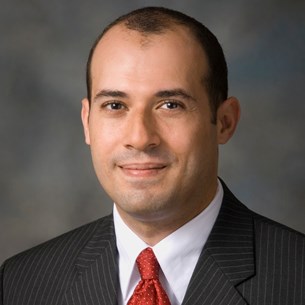Meeting
2020 Gastrointestinal Cancers Symposium

The University of Texas MD Anderson Cancer Center, Houston, TX
Ahmed Omar Kaseb , Dan G. Duda , Hop Sanderson Tran Cao , Yehia I. Abugabal , Luis M. Vence , Asif Rashid , Roberto Pestana , Jorge M. Blando , Shalini Singh , Jean-Nicolas Vauthey , Manal Hassan , Hesham M. Amin , Aliya Qayyum , Yun Shin Chun , Ching-Wei David Tzeng , Divya Sakamuri , Robert A. Wolff , James C. Yao , James Patrick Allison , Padmanee Sharma
Background: In HCC, surgical resection is associated with high recurrence rates, and no effective neoadjuvant or adjuvant therapies currently exist. Immunotherapy using anti-PD-1 antibodies has shown promised but limited increase in survival in advanced disease. To maximize the benefit, we are studying the efficacy and safety of anti–PD-1 (nivolumab) and anti–CTLA-4 (ipilimumab) antibodies against HCC for resectable HCC. Methods: This is a randomized phase II trial of nivolumab (Arm A) or nivolumab + ipilimumab (Arm B) as pre-operative treatment for patients with HCC who are eligible for surgical resection. Pts are given nivolumab 240 mg every 2 weeks (wks) for a total of 6 wks. Pt in Arm B are treated concurrently with ipilimumab 1 mg/kg every 6 wks. Surgical resection occurs within 4 wks after last cycle of therapy. Pts continue adjuvant immunotherapy for up to 2 years after resection. The primary objective is the safety/tolerability of nivolumab +/- ipilimumab. Secondary objectives include overall response rate, complete response rate and time to progression. Exploratory objectives include evaluating the pre- and post-treatment immunological changes in tumor tissues and peripheral blood. Results: Twenty-six patients were enrolled at the time of this interim analysis, of which 20 have evaluable data. Most pts (55%) were between 60-70yo and male (75%). Four pts were HCV-positive, 6 had HBV and 10 had no hepatitis. 20 patients proceeded with resection as planned, surgery was aborted for 5 patients (1 for frozen abdomen and 2 development of contralateral liver nodule). Three are still receiving preoperative therapy. Pathologic complete response (pCR) was observed in 5/20 evaluable patients – 2 in Arm A and 3 Arm B (25% pCR rate). Five patients in Arm B and 1 in Arm A experienced grade 3 or higher toxicity prior to surgery. No grade 4 or higher toxicity were observed. Conclusions: We report a pCR rate of 25% for resectable HCC after preoperative immunotherapy in a randomized phase II pilot trial. Treatment was safe and surgical resection was not delayed. The study is ongoing. These promising results may contribute to a paradigm shift in the perioperative treatment of resectable HCC. Clinical trial information: NCT03510871
Disclaimer
This material on this page is ©2024 American Society of Clinical Oncology, all rights reserved. Licensing available upon request. For more information, please contact licensing@asco.org
2020 Gastrointestinal Cancers Symposium
Poster Session
Poster Session B: Hepatobiliary Cancer, Neuroendocrine/Carcinoid, Pancreatic Cancer, and Small Bowel Cancer
Hepatobiliary Cancer,Neuroendocrine/Carcinoid,Pancreatic Cancer,Small Bowel Cancer,Other GI Cancer
Patient-Reported Outcomes and Real-World Evidence
NCT03510871
J Clin Oncol 38, 2020 (suppl 4; abstr 486)
486
A11
Abstract Disclosures
2023 ASCO Genitourinary Cancers Symposium
First Author: Laeth George
2023 ASCO Annual Meeting
First Author: Shailender Bhatia
2020 ASCO Virtual Scientific Program
First Author: Ahmed Omar Kaseb
2023 ASCO Annual Meeting
First Author: Bradley Alexander McGregor